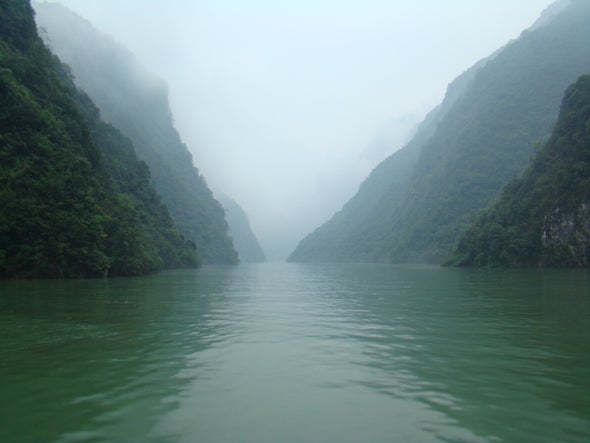This is Scientific American's 60-second Science, I'm Julia Rosen.
Gross domestic product, the GDP, is a simple way to describe the health of big, complicated economies. And for the last century, the goal of many countries has been to make their GDP go up. But concentrating only on GDP has had some downsides.
"In growing the economy, we have, as an unintended consequence, destroyed parts of nature, which are also important for our well-being."
Stephen Polasky, an environmental economist at the University of Minnesota. He and his colleagues have created a new measurement: the gross ecosystem product, or GEP.
"So that we actually have metrics that say how are we doing on ecosystems management, managing nature—and not just for nature's sake but 'How is that coming back and influencing our own well-being?' So really, GEP is trying to say, 'What is the contribution of nature to the economy?' So in a parallel way to what GDP does in measuring economic performance."
Tallying up the economic value of timber and fisheries is fairly straightforward. But other benefits of a healthy environment can be less obvious. Insects pollinate crops. Intact rivers improve water quality and buffer downstream cities from floods. Thriving ecosystems draw tourists, who spend money.

"And part of the issue here is that it is difficult to price some of these things. Some people even say, 'Well, they are priceless.' Unfortunately, what it means in practice—priceless means it has zero value in much of the calculations."
Zero value in the GDP but not in the GEP. For example, Polasky and his colleagues calculated the figure for Qinghai, a province in western China. They found that the gross ecosystem product exceeded GDP in the year 2000 and equaled three quarters of GDP in 2015. Over that period, GEP rose by 127 percent, thanks to major restoration efforts and the increasing value of water. The results are in the Proceedings of the National Academy of Science.
The researchers focused on Qinghai because it's one of several provinces where the Chinese government is experimenting with using GEP as part of its formal decision-making process. For instance, GEP can help officials weigh the pros and cons of potential projects like dams. Or it can be used to show whether local leaders are taking care of the environment and not just expanding the economy.
GEP could also serve as the basis for programs that pay residents to be good stewards of natural resources that benefit themselves and others. In Qinghai, such a program could work for water—the province is where the Yellow, Yangtze and Mekong rivers originate, and their waters sustain cities and farms across Asia.
Polasky says their work is just a first step, and he expects GEP to be refined over time. But he says we have to start somewhere.
"If we are actually going to have a sustainable civilization, then we have to pay attention to, kind of, the infrastructure, basically—the essential things that nature does for us—and not continue to just take them for granted."
Thanks for listening for Scientific American's 60-second Science. I'm Julia Rosen.












